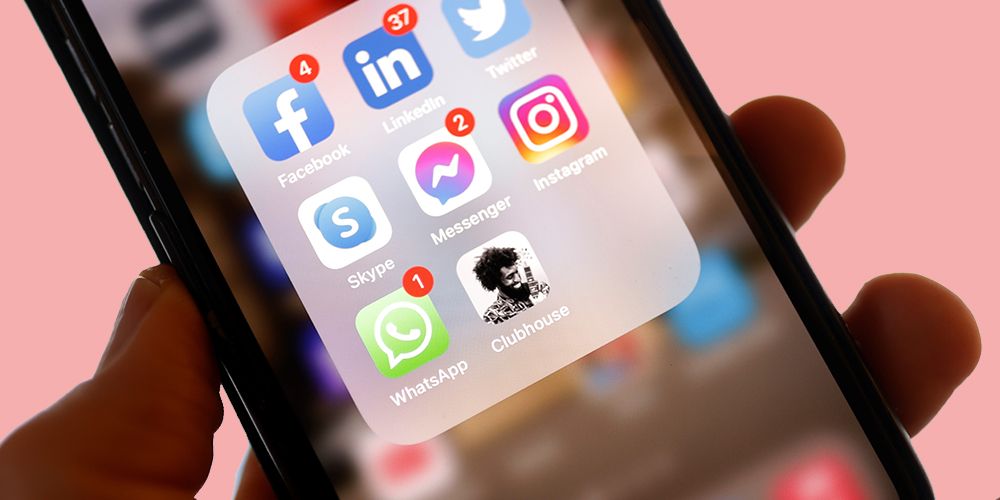When we had our first lockdown in Metro Manila last year on March 15, no one would have expected us to be where we are right now. When we look back to the times before the pandemic and compare those experiences to our current situation, everything seems surreal. It doesn’t feel right to be stuck at home for depressingly long periods of time. Personally, the pandemic has significantly affected my social life – I get almost no face-to-face social interaction. Being an ambivert, I acknowledge that I need that daily dose of social interaction from friends. Despite those problems, it’s a massive privilege for my direct family and me to be safe from the virus as millions of others suffer physically and financially. We are safe from the financial loss, loneliness, death, and sadness that plague the earth due to COVID. However, there is one huge problem that I indirectly suffer from, and which many people suffer from as well – the rise of misinformation in the pandemic, mostly stemming from new media.
When a person hears the phrase “new media,” I’d be willing to bet that they’d think of a social media site like Facebook, Twitter, or Youtube. That being the case, I’ll focus on that specific aspect of new media, as it is extremely relevant to the rise of misinformation in the pandemic.
For an academic definition of social media, Kaplan and Haenlein (2010, p.61) define it as “a group of Internet-based applications that build on the ideological and technological foundations of Web 2.0, and that allow the creation and exchange of User-Generated Content.” I believe that the two most important aspects in this definition are the phrases “technological foundation” and “exchange of User-Generated content.” We can attribute that technological side of media to social media algorithms. In contrast, we attribute user-generated content to social media posts. But what are social media algorithms, and how do they influence the way we receive information online?
In social media, algorithms play a huge role in what we see on our feeds. For example, if I search for a cat video on Youtube and like that video, Youtube could recommend another cat video. If I continue to watch more cat videos (which everyone should do), the algorithm would recognize that I am in love with cats and would therefore add a bunch of cat videos on my homepage for me to delve into for hours. In short, the algorithm caters to our likes, which is the same way for other social media like Facebook, Twitter, Instagram, etc. An article by Sara Morrison (2021) goes into detail about the way sites collect user data to provide them the content they’d want to see on their feeds. Morrison talks about how data is collected from anything connected to the internet, like phones, computers, and even things like online purchases. She continues, “We don’t have a lot of control over much of this data collection, and we often don’t realize when or how it’s used. That includes how it may be used to influence us.” That is actually the reason why we may see ads that seem to read our minds. In my own experience, there was a time that I was thinking of buying earphones, and a few minutes later, a Shopee ad of some cheap earphones for sale popped up on my social media. However, this data collection may also influence people’s viewpoints. As Morrison says, “… it may also take the form of a recommendation to watch a YouTube video about how globalist world leaders and Hollywood stars are running a pedophile ring that only President Trump can stop.”
This is our big problem – when a person who is anti-mask gets on the internet, his data is collected, which is then taken into account when being offered social media posts. So as long as this person continues to consume media that is anti-mask, he will continue to be fed media that is dominantly anti-mask. It’s become crazy in the US because of this. A concerning number of Americans believe that the vaccine for COVID is more harmful than the actual virus, and many others believe that masks impede their freedom. One may think, “It’s just a mask, why the hell can’t they wear it?” Unfortunately, these people have been blinded by a constant outpour of false information on the internet because that is what they want to see. As a result of their ignorance and their vaccine hesitancy, COVID cases continue to rise.
This sad conflict between algorithms and user content was discussed by Lev Manovich (2001). There is a convergence, or rather, a conflict between the computational logic of computers and the communicative logic of media in general. Even sadder is that this type of influence is also seen here in the Philippines. Vaccine hesitancy here is actually higher than expected.
A Bloomberg article by Calonzo and Tan (2021) explains the situation here in our country. As said in the article, “Anti-vaccination propaganda is a big reason for [vaccine] reluctance, which has further slowed takeup in countries already struggling with limited supplies.” US anti-vaccination movements have influenced many people here in the Philippines, which is just a terrible reality. According to Calonzo and Tan, as of July 2021, 68% of people are experiencing hesitancy or are completely unwilling to take the COVID vaccine. Hopefully this number has gone down as it is September as of this writing.
To be honest, the reason why I’m writing about this issue in the first place is because I experience this problem firsthand at home. To me and my siblings’ dismay, our parents are firm believers in Ivermectin and are anti-vaccine. Influenced by the Youtube and Facebook videos they watch, they continue to believe that the vaccine can harm a person, and bar us from even having an opportunity to take it. They force us to take Ivermectin, a medication that has not been proven to fight against COVID. Because of their blindness to the truth, our family is endangered. The article by Calonzo and Tan probably pinpoints the reason why my parents are anti-vaccine. “A heavily Catholic country, the Philippines has been particularly vulnerable to falsehoods peddled online by U.S. evangelical Christian groups, which then filter across through church and family networks.” Our family is also evangelical Christian, and I’m not ashamed of that. However, I am ashamed of the many Christians worldwide who seem to attribute the vaccine to evil and the devil, mostly stemming from US Christian groups. As a result, so many people suffer—so many die.
I’d like to end this blog on a somewhat hopeful note. I’d like to point out that social media companies do understand the massive spreading of misinformation on their platforms and try their best to erase that content. And despite all this despair, I have hope and pray to God that slowly and surely, people will stop being influenced by unreliable sources and rely on true medical professionals, especially in this time wherein workers in the medical field are the heroes of the world. I’d like to cling to that little glimmer of light that maybe – we’ll all be okay in the future.
Written by an undergraduate student who requested to remain anonymous.
________
DISCLAIMER: All views and opinions expressed in this post are solely those of the contributor/s and do not represent those of POP! and INQUIRER.net. The POP! staff assumes no liability for any error in the content of this material. Got something you want to share to the world? Get a chance to publish your awesome creations and share it to the world through our POP! Creator Community program. Send us your stories, videos, photos, fan fic, and even fan art at pop@inquirer.net
For more details, read the POP! Creators FAQ page.



